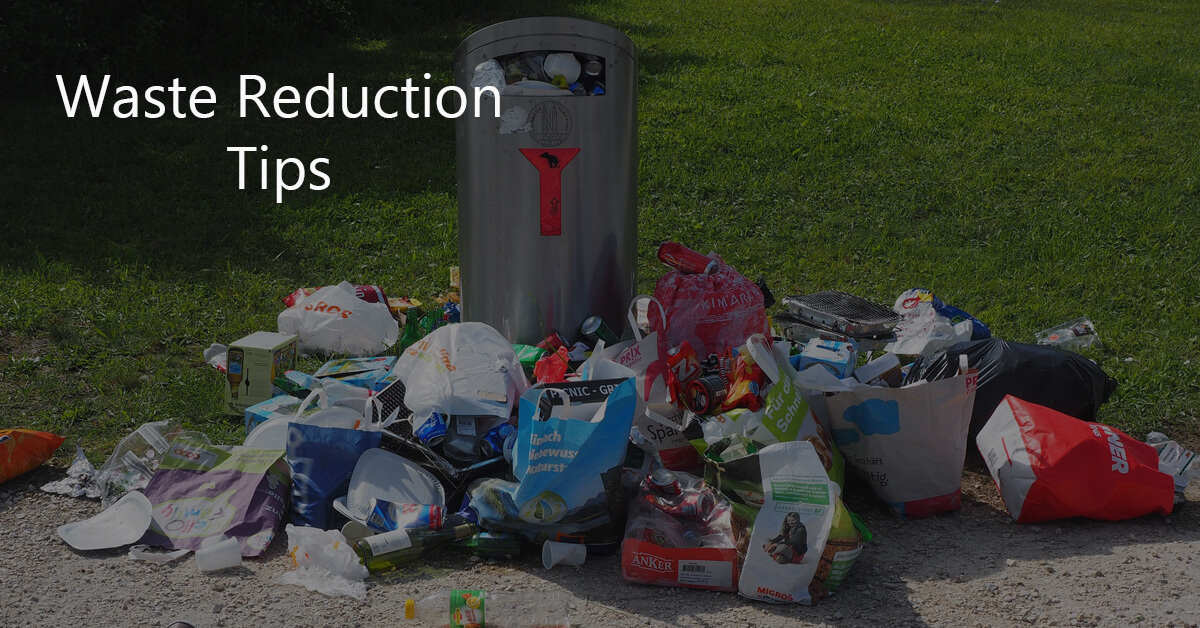Reducing the amount of waste you generate offers benefits on multiple fronts. First up, it helps you save a lot of money. How? Well, lower the waste you generate, lower is the money you pay for waste disposal. Secondly, you also help the environment in the process. That’s because even if a large part of your waste is recyclable, there is always some part that will find its way into some landfill in the countryside.
For small businesses, these are benefits worth striving for. If you own a small business or are part of one in any capacity, implementing these eight waste reduction tips are guaranteed to bring you lasting results.
1) Audit your waste
The answer to how to minimise waste in the workplace starts with auditing the waste it generates. After all, how can you deal with waste effectively when you don’t know what it’s made up of! Ideally, you should get a waste removal service or a company that specialises in waste management services to audit your waste. But if you have the knowhow, there is nothing to stop you from doing it yourself.
2) Minimise printing emails
A mistake that’s sadly committed by many businesses, printing emails is the definitive gaffe as far as creating an eco-friendly workplace is concerned. Emails are meant to sit in the cloud and not your file cabinet. Only resort to printing emails if necessary. In fact, you can even nudge others in that direction by including a note at the end of your email that goes something like, “Please consider the environment before printing this email.”
3) Refill printer cartridges
If your business doesn’t use the services of a professional waste recycler, disposing your old printer cartridge can be challenging. There is also the fact that new cartridges are expensive. Both these reasons make a strong case as to why it’s worth refilling your printer cartridges rather than discarding them after first-use. Aftermarket ink or toner is freely available for most modern printers and each cartridge can take multiple refills before reaching its end of life.
4) Eliminate single-use items from the kitchen
One of the best ways to minimise waste in the workplace is to stop using disposable paper plates, coffee cups, and plastic crockery. You’ll be surprised to know how much of a business’s dumpster space is taken up by these single-use items. Instead, invest in good quality kitchenware and cultivate a workplace culture where people wash the utensils after using them. Although more expensive in the short term, not to mention the likely initial resistance from employees, this is a measure that will save money in the long term.
5) Do away with plastic water bottles
When you consider that most people drink at least a litre of water every day at work, it adds up to a large number of plastic bottles. Encourage your employees to drink water out of glass or steel tumblers. Even better, gift them with stainless steel bottles. Like the previous point, this is something that will pay off in the long run.
6) Segregate the waste
Segregation is a proven way of dealing with waste in an efficient and productive manner. Use signs to indicate which type of waste should go in which bin (yes, you need to have separate bins for different kinds of waste). This way, waste that is recyclable will go into the recycling bin and organic/wet waste will go into the composting bin.
7) Train employees regularly
Just as the success of your business is intertwined with the success of your employees, so too does the success of your waste reduction methods hinge on the participation and enthusiasm of your employees. Which is why you should invest in training your employees regularly on the different aspects of waste management. Create a waste disposal protocol and have your employees actively participate in it. By updating them with the progress of this protocol, you can encourage greater employee enthusiasm and participation.
8) Tell your customers about it
Sharing your commitment towards reducing waste with your customers is a great way of spreading the message. You can share waste reduction tips or even theme your outbound communication around waste reduction. Customers, just like employees, respond well to positive messaging and can further help you contain your waste.
As a final point, your business can opt to clean the house once a year and donate all surplus items. You can get in touch with charities and self-help groups nearby and find out if your trash can be someone else’s treasure. Waste reduction practices for businesses, as such, can be helpful to even those who are not part of them.
The benefits of reducing waste in the workplace are multi-fold. And if you are able to instil a culture of efficient waste management at the workplace, chances are your employees will be influenced by it. It’s not a stretch then to assume they’ll start something similar in their own homes.

